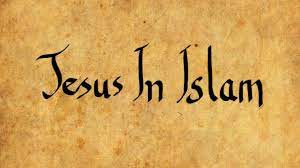
In Islam, Jesus (referred to as Isa) holds a significant and revered position. Here’s a breakdown of how Muslims view him:
Jesus/Prophet and Messenger of God:
- Muslims believe Jesus was a human prophet and messenger chosen by God, just like Abraham, Moses, and Muhammad (PBUH). He is mentioned by name 25 times in the Quran, emphasizing his importance.
- He is called the Issa-Ibn-Maryam/Messiah (al-Masih), entrusted with a divine mission to guide the Children of Israel (Bani Israil) with a scripture called the Injil (Gospel).
Miraculous Birth and Ministry:
- Muslims believe in the miraculous birth of Jesus to Mary (Maryam) without a human father, signifying God’s intervention.
- They acknowledge his miracles, including healing the sick, raising the dead, and speaking from the cradle.
- However, unlike some Christian beliefs, they do not consider Jesus divine or the son of God.
Ascension and Second Coming:
Muslims believe Jesus did not die on the cross but was miraculously saved by God and ascended to heaven. Several narrations attributed to Prophet Muhammad (PBUH) mention Jesus’ return. Most famously, he describes Jesus descending from the heavens, establishing justice, and defeat the Antichrist (Dajjal).
He will not return as a prophet but as a righteous follower of Islam, upholding the Law and teachings of Prophet Muhammad (PBUH).
Length of stay: Opinions vary, but some suggest he will live for 40 years before passing away a natural death.
They expect his second coming before the Day of Judgement, where he will rule with justice and righteousness.
Key Differences from Christianity:
- While sharing similarities with some Christian narratives, Islamic perspectives differ on Jesus’ divinity, crucifixion, and resurrection.
Acknowledging Miracles:
- The Quran clearly mentions and emphasizes Jesus’ miraculous abilities, highlighting:
- Miraculous birth: Jesus was born to Mary (Maryam) without a human father, considered a powerful sign of God’s intervention.
- Speaking from the cradle: As an infant, Jesus defended Mary from accusations of infidelity, showcasing divine support.
- Healing: He possessed the ability to heal the sick and blind, exemplifying God’s mercy and power.
- Bringing the dead back to life: The Quran mentions this ability without going into details, indicating its miraculous nature.
- Creating birds from clay: Jesus breathed life into clay birds, demonstrating his connection to God’s creative power.
Important Distinctions:
- Muslims believe these miracles were granted by Allah to support Jesus’ prophethood and mission.
- Unlike some Christian interpretations, Muslims do not consider Jesus divine or possessing inherent power.
- They see him as a righteous human prophet chosen by God for a specific purpose, emphasizing his obedience and submission to Allah.
Respect and Reverence:
- Despite these differences, Muslims hold Jesus in high esteem and respect. They believe in his message of love, peace, and justice, emphasizing his role as a righteous prophet and example for all.
Understanding Different Interpretations:
- Within Islam, various interpretations and perspectives exist regarding Jesus’ life and teachings.
- Engaging with diverse scholarly opinions and historical contexts is crucial for a deeper understanding.
Remember:
- Reducing Jesus’ role in Islam solely to these points may lead to oversimplification.
- Exploring diverse perspectives and engaging in respectful dialogue with Muslim communities helps foster understanding and appreciation for the richness of religious traditions.